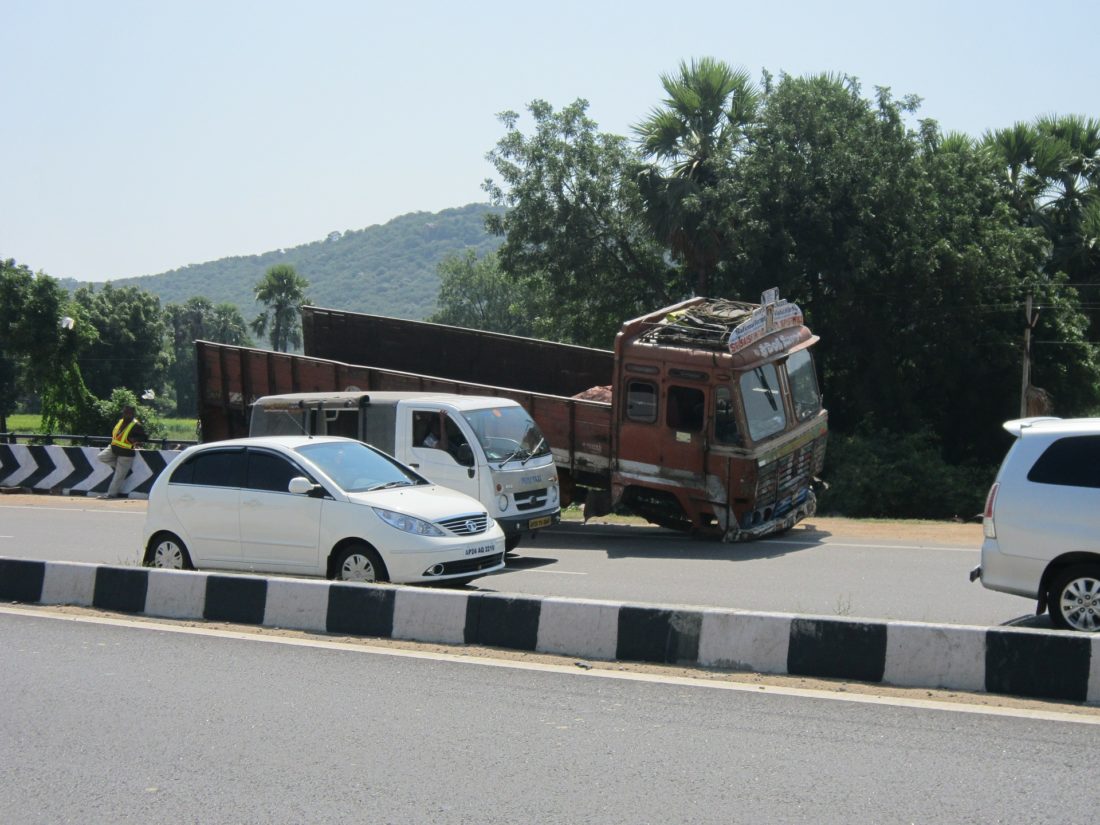Hit by a Truck: Proceed With Purpose and Caution
 Any time you get behind the wheel of a passenger vehicle, you’re exposing yourself to a certain degree of risk. And when you consider that you often drive alongside, in front of, and behind massive tractor trailers and semi-trucks that are up to 20-times heavier and more powerful than your vehicle, there’s reason to be cautious. But no measure of careful behavior can keep you totally out of harm’s way.
Any time you get behind the wheel of a passenger vehicle, you’re exposing yourself to a certain degree of risk. And when you consider that you often drive alongside, in front of, and behind massive tractor trailers and semi-trucks that are up to 20-times heavier and more powerful than your vehicle, there’s reason to be cautious. But no measure of careful behavior can keep you totally out of harm’s way.
Table of Contents
6 Steps to Take After a Truck Accident
According to the Insurance Institute for Highway Safety, “A total of 4,102 people died in large truck crashes in 2017. Seventeen percent of these deaths were truck occupants, 68 percent were occupants of cars and other passenger vehicles, and 14 percent were pedestrians, bicyclists or motorcyclists. The number of people who died in large truck crashes was 30 percent higher in 2017 than in 2009, when it was the lowest it has been since the collection of fatal crash data began in 1975.”
These numbers aren’t meant to scare you, but they are intended to serve as a wake-up call. If you ever find yourself involved in a truck accident, you need to know what to do. Here’s one suggested response plan:
1. Get Immediate Medical Attention
Nothing matters more than your health. While you’ll likely be in a state of surprise or shock after a truck accident, you should take the time to do a quick self-check. Understand that adrenaline can mask injury symptoms in the immediate aftermath of an accident, so be sure to do a visual check for lacerations, broken bones, and other obvious symptoms. The next step is to call 911 so that emergency medical services can be dispatched to the scene.
2. Call the Police
It’s also important to call the police to the scene so that you can file a police report. The information compiled in the report will be used the insurance claims and proceedings that follow.
3. Document and Record Evidence
If your condition is stable, you can use the time before EMS and law enforcement arrive to document and record as much evidence as possible. This is most easily accomplished via your smartphone. Take photos and videos of the scene. You may also want to record a verbal account of what happened so that you don’t forget any key details.
4. Call Your Insurance Company
You are required by law to contact your insurance company to notify them that a truck hit your vehicle. You’ll want to do this pretty soon, as time is very much of the essence. Your notes/evidence will come in handy as you answer their questions and file a claim.
5. Don’t Talk to the Trucker’s Insurance Company
As important as it is to call your insurance and file a claim, you should never speak to the trucker’s insurance company or claim’s adjustor without first consulting your attorney and getting all of the proper pieces of information lined up. No matter how much you’re pressured into signing a document or accepting an offer, resist the urge to follow through. You need time to figure out what your case is worth and how you want to proceed.
6. Hire a Truck Accident Attorney
“In every case, liability will depend on the circumstances of the accident,” Fine, Farkash & Parlapiano, PA notes. “A thorough investigation should determine what happened and who was at fault. After an accident, there may be many parties at fault, so it’s critical to have an experienced truck accident lawyer in your corner to help you determine who could be held liable for your injuries.”
When choosing a truck accident attorney for your case, look for someone who has (a) years of experience working on truck accident cases, and (b) a successful track record. A good truck accident attorney will help you pursue the compensation that you deserve. This will involve extensive research, claim calculations, and negotiations. Choose someone you’re comfortable with and they’ll become a key asset for your case.
Protect Your Best Interests
You can’t always control what other drivers do while on the road, but you do have direct influence over the response. Continue to familiarize yourself with how to respond in order that you can protect your own legal, financial, and health-related interests.









